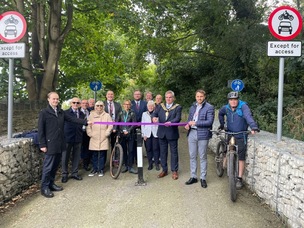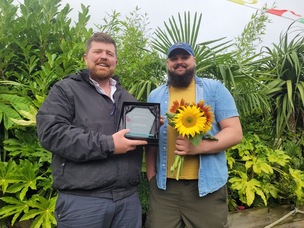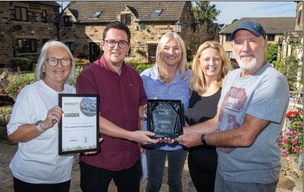MILLIONS of pounds will be invested in four waste water treatment works across Barnsley in order to improve the quality of local watercourses.
It is part of an £11m project to reduce the level of phosphorus entering the town’s rivers from Yorkshire Water treatment works by 56 per cent by 2025 to meet Water Industry National Environment Programme (WINEP) targets.
While a small amount of phosphorus is harmless and is an essential part of many ecosystems, it can become damaging to human and animal life when unmanaged, according to bosses behind the scheme.
By upgrading process at Darton, Grimethorpe, Wombwell and Worsborough treatment works, Yorkshire Water will be reducing the amount of phosphorus entering rivers.
BarhaleEnpure will be installing self-contained dosing cabinets at each of the sites, incorporating pumps, control panels and primary and secondary chemical dosing equipment to remove the phosphorus.
Rachael Fox, head of programme delivery at Yorkshire Water, said: “Reducing the amount of phosphorus entering Yorkshire’s watercourses has been a key focus for us in the five years between 2020 and 2025.
“By investing in four of our wastewater treatment works around Barnsley we’ll significantly reduce the amount of phosphorus in the water environment, protecting the watercourse and the wildlife and allowing them to thrive.”
Phosphorus is a normal part of domestic sewage, entering the sewer system via showers and washing machines due to products such as shampoo and liquid detergent containing the element.
It can also wash off from agricultural fields after the use of fertilisers and be dissolved from soil which can be difficult to control.
The Environment Agency reports that 55 per cent of river water bodies assessed in England have failed phosphorus standards for good ecological status.
Mark Woods, Barhale’s regional director, added: “We are very pleased to be selected for these schemes.
“Under WINEP there is a big focus on reducing phosphorous discharge and the four schemes around Barnsley will play an important part in improving water quality in South Yorkshire.
“Using off-site manufacture enables us to adopt a near modular approach to each project so we can reduce time on site, typically to around eight months, and complete works quicker.
“We are looking forward to working closely with Yorkshire Water to successfully deliver these schemes.”
An Environment Agency spokesperson said phosphorus control remains high on officers’ agendas.
They added: “Phosphorus is the main cause of eutrophication in freshwaters - this is when there is too much nutrient in rivers, lakes and reservoirs, causing excessive growth of algae and plants.
“This adversely affects the quality of the water and our uses of it, as well as damaging the local ecology.
“For more than two decades, the Environment Agency and other interested groups have identified the risks and impacts of freshwater eutrophication as a significant concern.
“Eutrophication increases the cost of drinking water abstraction and treatment, adversely affects angling, water sports and other recreational activities, and causes the loss of sensitive plants and animals in rivers and lakes.
“We need to consider further national and catchment-level measures to control phosphorus.”




























